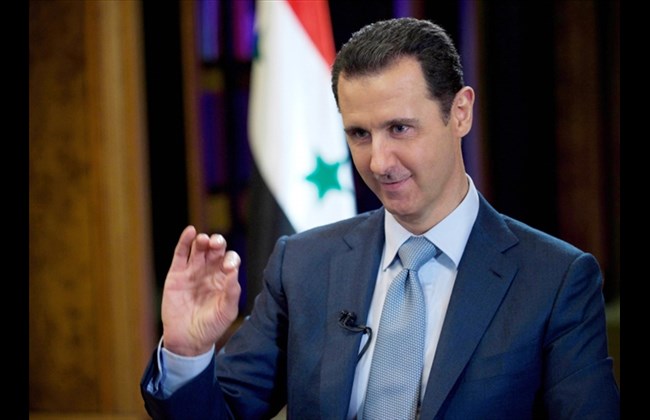President Assad: the STL’s elephant in the room
Elise Knutsen| The Daily Star/Mar. 30, 2015
BEIRUT: While Syrian President Bashar Assad has been referenced on a near-daily basis at the Special Tribunal for Lebanon over the past few months, it is unlikely that the Syrian regime will be legally implicated in crimes the court is investigating, experts say.
While the names of the five Hezbollah suspects accused of being criminally responsible for Rafik Hariri’s February 2005 assassination have been uttered only a handful of times since political testimony began last November, both the prosecution and the defense have quizzed witnesses extensively about Assad’s role in the political and security climate which prevailed in Lebanon in 2005.
Judge Nicola Lettieri remarked frankly on Assad’s simultaneous absence and ubiquity in the proceedings – something of an elephant in the courtroom – earlier this month.
“There is a ghost who wanders in this courtroom, that is a Syrian regime and this president,” Lettieri said. Minutes later, he clarified his statement. “I spoke about ‘ghost’ because a ghost is someone who is not present in the courtroom but whose ears are always burning.”
Political witnesses allied with Hariri have for months been highlighting the fraught and even inimical relationship between the late prime minister and the Syrian president.
Still, it would be immensely difficult to prove that the Assad regime is directly tied to Hariri’s assassination, explained Rodger Shanahan, a research fellow at the Lowy Institute for International Policy. “Even if it had been ordered by him [Assad], it is hardly likely that there would be any admissible evidence of a standard sufficient to meet judicial requirements,” Shanahan told The Daily Star.
Many of the individuals who may have been in a position to testify to the links between Hezbollah, Damascus and the Lebanese-Syrian security apparatus have died. Nadim Shehadi, director of the Fares Center at Tufts University, noted that “key” figures identified by United Nations investigators as potentially implicated in the crime, including top Hezbollah commander Imad Mughniyeh, leading Syrian intelligence officer Jamaa Jamaa and Assad’s brother in-law Assef Shawkat have taken their secrets to the grave. Bashar, Shehadi said, is not the ghost of the STL. Rather, the individuals who could “link” him to Hariri’s assassination are ghosts.
Moreover, Syria is not legally required to cooperate with STL. Unlike the Lebanese government, which is bound by order of the United Nations Security Council to assist the proceedings, the Syrian regime is under no obligation to provide evidence or suspects that could be material to the case. Even if the international community applies pressure, it seems unlikely that the regime will be cooperative, said American University of Beirut Professor Sari Hanafi. “I mean the international community … was unable to stop Assad’s madness in Syria,” he said, referring to the bloody civil war in the country now entering its fifth year. “It will not convince Syria to deliver” its citizens to the tribunal for questioning.
Peter Haynes, who represents the victims of the blast that killed Hariri and 21 others, said Assad and the Syrian regime are unlikely to materialize in any meaningful way at the STL.
“I don’t see it being any more concrete than a spectral presence,” he said. While the victims hold a wide range of political opinions, Haynes said that many share “general belief that the Syrians were where the buck stopped with this murder.” Though Assad may remain a ghost before the STL, Haynes said that evidence presented at trial may well pave the way for future lawsuits against the regime. “I think the trial chamber is perfectly entitled to make findings that the Syrian regime had the dark hand in all of this. And that may be sufficient for subsequent civil claims against them [the regime],” Haynes said. Specifically, if adequate evidence against Assad is presented before the court, victims may be able to sue the regime for compensation.
“But that’s a long away from indicting any individual connected to the regime,” he acknowledged. “It is unlikely [Assad] will be prosecuted for the attack on Hariri or for any other act before [the] tribunal,” agreed lawyers Karlijn van der Voort and Anne-Marie Verwiel, who run a blog about the STL. Still, evidence against the regime raised at the STL may help generate momentum to bring Assad to justice. “It may serve to gain international political will to have Assad and his allies tried before either the ICC or, if that remains impossible, to create a Special Tribunal for Syria,” they said in a joint email.




















